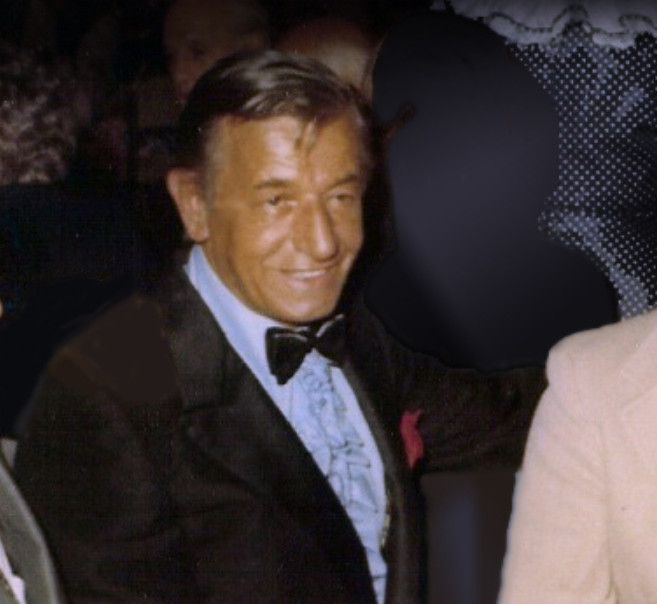
Paul D'Amato
Childhood
Born on December 1, 1908, in Atlantic City, New Jersey, D'Amato was one of eight children in an Italian American family. After the death of one or both of his parents, he took on the responsibility of supporting his siblings at just 15 years old by opening a cigar store—which doubled as an illegal gambling operation. Despite having only two years of formal education, his business acumen was evident early on.
Career
D'Amato’s rise in Atlantic City began with Luigi’s, a restaurant and gambling hall. His most famous venture was the 500 Club, acquired in the 1940s, which became a hub for high-stakes gambling and A-list entertainment.
Key Career Highlights:
- Illegal Gambling Operations: The 500 Club was allegedly a front for illegal gambling, attracting wealthy patrons with performances by Frank Sinatra, Sammy Davis Jr., and the comedy duo Martin & Lewis 17.
- Mob Connections: D'Amato worked with Enoch "Nucky" Johnson (the corrupt treasurer of Atlantic County) and was an associate of Chicago Outfit boss Sam Giancana and Carlos Marcello of the New Orleans crime family.
- Lake Tahoe Casino: He managed a club in Lake Tahoe for Sinatra but faced financial ruin after the casino lost its license due to Giancana’s involvement.
- Cal Neva Lodge: D'Amato owned 13% of the Cal Neva Lodge and Casino in Nevada, where Giancana was a silent partner.
The 500 Club burned down in 1973, and with minimal insurance, D'Amato lost nearly $2 million, marking the end of his empire.
Personal life
Marriage: D'Amato married Betty Jane Creamer in 1949, and they had two children before her death in 1972.
Family Tragedy: His son, Angelo D'Amato, was convicted of murder in 1981 and sentenced to 25 years to life.
Death: D'Amato died of a heart attack on June 5, 1984, at 75. Frank Sinatra served as a pallbearer at his funeral.
Revenue
While exact revenue figures for the 500 Club are scarce, D'Amato’s operations were lucrative enough to sustain Atlantic City’s nightlife for decades. The club’s gambling operations likely generated millions annually, given its elite clientele and high-profile entertainment.
After the 1973 fire, D'Amato’s financial decline was irreversible. His lack of insurance coverage led to a $2 million loss, and he never fully recovered.
Interesting facts
Nicknamed "Mr. Atlantic City" for his generosity—he often provided food and gifts for needy families.
Drank 50 cups of coffee a day and smoked 6-7 packs of cigarettes.
Hosted free shows for wounded WWII soldiers at the 500 Club.
Inspired Wolverine’s appearance in X-Men—Marvel artist John Byrne based the character’s look on D'Amato’s role in Slap Shot (though this refers to the actor Paul D'Amato, not Skinny).
Legacy
D'Amato’s influence on Atlantic City’s gambling culture was profound. Though he operated in the shadows of legality, his club set the stage for the city’s later casino boom. His friendships with Sinatra and mob figures cemented his legend in both entertainment and organized crime lore.
A historical marker in Atlantic City commemorates his contributions near the former site of the 500 Club.
Frequently asked Questions
Yes, he was associated with Sam Giancana (Chicago Outfit) and Carlos Marcello (New Orleans crime family) but was never convicted of a crime.
A backstage electrical fire destroyed it in 1973, and D'Amato had little insurance, leading to massive financial losses.
Yes, he was a longtime advocate for legal gambling in Atlantic City, believing it would revive the economy.
They were close friends—Sinatra performed at the 500 Club early in his career and was a pallbearer at D'Amato’s funeral.












